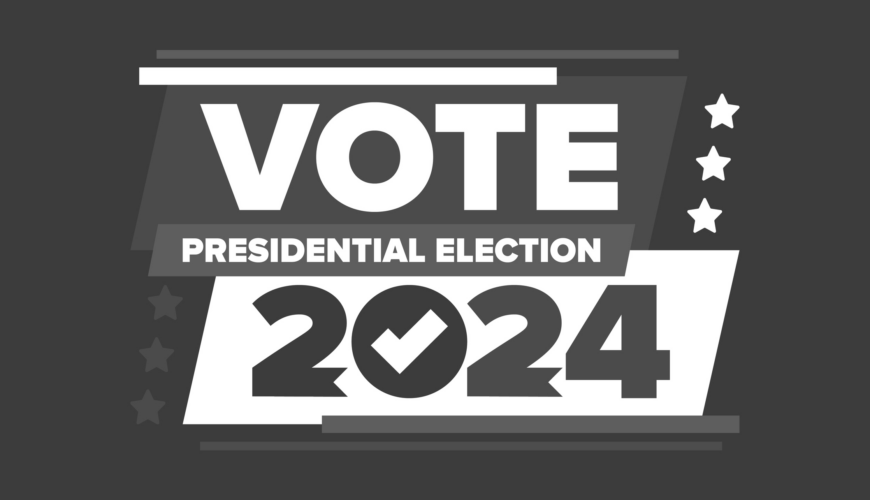In the global business landscape, presidential election cycles can introduce a unique uncertainty that significantly impacts supply chains. The intense and often contentious battles between candidates, such as the current contest between Kamala Harris and Donald Trump, exemplify this phenomenon. C-level business leaders frequently find their decision-making processes impaired by the ‘foggy crystal ball’ effect—the lack of clear, forward-looking visibility into how election outcomes will shape future business conditions. This uncertainty often leads to a paralyzing delay in planning and investment decisions, which can severely compromise supply chain efficacy. It is crucial to raise awareness about the potential risks and challenges posed by this uncertainty, and to encourage executives to adopt strategies that allow them to anticipate and adapt to potential outcomes rather than simply waiting for clarity.
The Impact of Presidential Election Cycles on Supply Chains
Presidential elections in the United States can have far-reaching implications for supply chains. Candidates’ platforms often address critical issues such as trade policies, tariffs, regulatory environments, and economic strategies. When the election cycles become contentious, as they often do, the resulting uncertainty can have several immediate and long-term effects on supply chains. This underscores the urgent need for proactive planning and adaptation strategies, rather than waiting for clarity.
- Trade Policy Uncertainty: The potential for shifts in trade policies, including tariffs and trade agreements, can create significant volatility in supply chains. For instance, a change in leadership might lead to new trade barriers or the renegotiation of existing agreements, impacting import and export dynamics.
- Regulatory Changes: Different administrations may propose varying levels of regulatory oversight. Changes in regulations related to environmental standards, labor laws, and safety requirements can directly affect supply chain operations and costs.
- Economic Policies: Fiscal and monetary policies, including taxation and government spending, can influence economic conditions such as inflation rates, interest rates, and overall economic growth. These factors, in turn, affect supply chain costs and investment decisions.
The Foggy Crystal Ball: Decision-Making Challenges
The inherent uncertainty creates a “foggy crystal ball” for C-Level executives during election cycles. Business leaders struggle with predicting the potential impacts of election outcomes on their operations. This uncertainty often leads to paralysis, where companies delay critical decisions and investments until the election results are known. This procrastination can manifest in several detrimental ways:
- Delayed Investments: The hesitation to commit to new projects or investments can lead to missed opportunities. Supply chain initiatives require implementation time, such as upgrading technology or expanding capacity. Delays in these investments can result in long lead times and increased costs when the decision is finally made.
- Operational Inefficiencies: Waiting for election results can lead to operational inefficiencies. For example, if a company postpones supply chain optimization projects, it may face higher operational costs and reduced flexibility, making it more difficult to adapt to changes post-election.
- Competitive Disadvantage: Competitors proactive in planning and risk management strategies may gain a significant edge. Companies that adopt a wait-and-see approach risk falling behind those already prepared for potential outcomes.
The Overestimation of Election Impact
A common pitfall for many business leaders is overestimating the impact that election outcomes will have on their operations. While it is important to consider potential policy changes, many proposed changes take time to be enacted and may not have an immediate or significant impact on supply chains.
Executives often focus on the most dramatic potential outcomes, which can lead to an exaggerated sense of urgency. This overestimation can result in overly conservative decision-making, where leaders avoid necessary investments or strategic initiatives out of fear of potential disruptions.
Gaining a Competitive Advantage Through Proactive Planning
To navigate the uncertainties of election cycles effectively, business leaders must adopt proactive strategies that allow them to prepare for various scenarios rather than being immobilized by unpredictability. Here are some fundamental approaches to consider:
- Scenario Planning and Sensitivity Testing: By simulating different election outcomes and assessing their potential impacts on the supply chain, companies can better prepare for a range of possible scenarios. Sensitivity testing helps identify which variables are most critical to the supply chain and how they might be affected by changes in policy or regulation.
- Investment in Flexibility: Building flexibility into supply chains can help mitigate the risks associated with election-related uncertainties. This might involve investing in technology that enhances visibility and responsiveness or developing alternative sourcing strategies to reduce dependence on any single supply chain node.
- Risk Mitigation Strategies: Developing comprehensive risk management plans for various political and economic scenarios can help companies respond more effectively to changes. This includes diversifying suppliers, creating contingency plans, and building buffer inventories.
- Continuous Monitoring and Adaptation: It is crucial to stay informed about political developments and their potential impacts on the business environment. Companies should continuously monitor changes and adapt their strategies as needed rather than waiting for the final election outcome.
- Engaging in Policy Advocacy: Companies can sometimes influence policy outcomes by engaging in advocacy efforts. By participating in industry groups or lobbying for specific policies, businesses can help shape the regulatory environment to support their strategic goals.
The Consequences of Paralysis
The consequences of delaying decisions and investments due to election cycle-related uncertainty can be severe. Companies that procrastinate may face several challenges:
- Extended Lead Times: Postponing projects can result in extended lead times, making it difficult to respond quickly to market changes or competitive pressures once the election results are known.
- Increased Costs: Delays in planning and investment can lead to higher costs, as companies may need to expedite projects or deal with inefficiencies that could have been avoided with earlier planning.
- Lost Market Share: Competitors who act proactively may capture market share and establish a stronger position, leaving companies that delay their decisions disadvantaged.
- Operational Disruptions: A lack of foresight and planning can lead to operational disruptions, which can impact the company’s ability to meet customer demands and maintain supply chain efficiency.
Contentious presidential election cycles, such as the current battle between Kamala Harris and Donald Trump, create significant uncertainty for businesses, particularly in supply chains. The “foggy crystal ball” effect often leads to paralysis in decision-making as C-level executives wait for clearer visibility into potential outcomes. This procrastination can severely damage supply chain efficacy, resulting in long lead times, increased costs, and a competitive disadvantage.
To mitigate these risks, business leaders must adopt proactive strategies, including scenario planning, sensitivity testing, and investment in flexibility. Companies can navigate election-related uncertainties more effectively by preparing for various potential outcomes and developing robust risk management plans. Proactive planning and strategic foresight are essential for maintaining supply chain efficiency and gaining a competitive edge in an unpredictable environment. Paralysis is not an option; decisive action and forward-looking strategies are key to thriving amidst election-related uncertainty.


